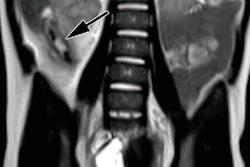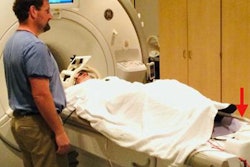Dear MRI Insider,
Sometimes a little adjustment to a current protocol can result in huge strides in diagnoses. Take Parkinson's disease, for example. Italian researchers modified often-used MRI-based measurements of certain brain regions to distinguish between Parkinson's disease and progressive supranuclear palsy (PSP) with parkinsonism.
The MR Parkinsonism Index (MRPI) has been used to diagnose patients with suspected PSP, but it can result in subpar sensitivity. Given that deficiency, the researchers added one more factor to create the MRPI 2.0, a more effective way to differentiate between the conditions and predict which patients could develop vertical gaze abnormalities.
Details are available in this edition's Insider Exclusive.
MRI also can be the first choice to confirm suspected cases of acute appendicitis in children or to provide an accurate alternative diagnosis. MRI achieved near-perfect accuracy when used as the initial imaging modality in this study of some 400 emergency room patients.
Could vagus nerve stimulation help ease pain from post-traumatic stress disorder? Functional MRI scans provided an affirmative answer to that question by showing reduced activity in brain regions linked to pain processing.
In other news, Finnish researchers have discovered the presence of gadolinium from MRI contrast in gliomas, as well as in neighboring normal brain tissue and necrosis. The findings contribute to the body of knowledge regarding the retention of trace elements from gadolinium-based contrast agents.
In addition, a stress test with cardiac MRI can do more than simply assess heart function. The modality's findings can also predict which patients are most likely to have a fatal outcome within five years, according to a longitudinal study from researchers at seven U.S. medical centers.
Stay in touch with the MRI Community on AuntMinnie.com on a regular basis for coverage of news and research developments around the globe.


.fFmgij6Hin.png?auto=compress%2Cformat&fit=crop&h=100&q=70&w=100)





.fFmgij6Hin.png?auto=compress%2Cformat&fit=crop&h=167&q=70&w=250)











